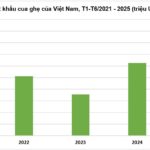The Vietnamese government has submitted Report No. 867 to the National Assembly and its deputies, detailing the implementation results of resolutions on questioning activities within the Ministry of Home Affairs.

The government plans to eliminate the requirement for professional title promotion exams for civil servants.
One of the key tasks reported by the government is the review and maximum reduction of certificates not aligned with job position standards, conditions, and requirements.
The report highlights that the Prime Minister has directed relevant agencies to issue Decree No. 89/2021, amending and supplementing certain provisions of Decree No. 101/2017 on training and development for officials, civil servants, and public employees. Additionally, the Minister of Home Affairs issued Circular No. 02/2021, specifying codes, professional standards, and salary scales for administrative and clerical civil servant positions.
Competent authorities have also requested ministries managing specialized civil servant positions and professional titles for public employees to urgently draft and issue circulars amending and supplementing regulations on professional and technical standards for the respective positions under their management.
These circulars should include provisions on training certificates according to civil servant rank standards and public employee professional title standards.
For specialized civil servant positions, it is recommended to require certificates in state management knowledge and skills for civil servants holding corresponding ranks. For public employee professional titles within the same field, it is suggested to mandate a single training certificate based on professional title standards (without categorizing by title class as previously done) or a professional practice certificate (if applicable).
Regarding language and IT proficiency standards, Government Decree No. 89/2021 eliminates the mandatory requirement for IT and language training certificates in recruitment and promotion exams. This has led to the reduction of 150 certificates, including 61 out of 64 civil servant rank training certificates and 89 out of 145 public employee professional title class training certificates.
Ministries managing specialized fields are tasked with researching and establishing appropriate language and IT proficiency standards based on the responsibilities and duties of respective positions.
However, the government acknowledges that compiling and reviewing all types of certificates for civil servants and public employees across the entire system is a massive undertaking, requiring careful and objective analysis, evaluation, and assessment to formulate suitable proposals.
As a solution, the government will urge specialized ministries to expedite the amendment and supplementation of regulations on civil servant rank standards and public employee professional title standards, revising existing regulations to minimize administrative procedures in recruitment and promotion.
“The government will not implement professional title promotion exams for public employees, retaining only the title promotion review process. It plans to research the elimination of professional title classes, aligning with the reform of the job-based salary mechanism,” the report states.
100% of Ministries, Agencies, and Localities Approve Job Positions
The government’s report to the National Assembly and its deputies also outlines progress in developing and finalizing job position lists, job descriptions, and competency frameworks.
The government reports that 100% of ministries, agencies, and localities have completed the development and approval of job positions within administrative agencies, public service units, and organizations under their management as per government delegation.
This serves as a foundation for refining policies and laws on recruitment, utilization, and management of civil servants and public employees, as well as determining staffing norms for public service units by sector and field, tailored to regional characteristics, particularly in education, training, and healthcare.
Ministries, agencies, and localities have proactively and diligently formulated plans and directed the implementation of job position approvals, ensuring synchronization, uniformity, and timeliness to meet the wage policy reform schedule. The government asserts that this task aligns with organizational structure, functions, duties, and allocated staffing levels.
Furthermore, civil servants, public employees, and staff are being utilized, arranged, trained, and developed in accordance with job descriptions and competency frameworks.
The government believes that the development and approval of job positions have facilitated the management and operational activities of agencies, organizations, and units, gradually enhancing the effectiveness of recruitment, management, and utilization, coupled with restructuring and improving the quality of the civil servant, public employee, and staff workforce based on job positions.
Consequently, the utilization, arrangement, and management of civil servants, public employees, and staff are conducted rationally, with positions aligned with the qualifications and capabilities of individuals.
Ministries, agencies, and localities are also focusing on periodically reviewing, updating, and adjusting job positions to ensure alignment with assigned tasks at each stage.
Clarifying the Regulations on “Suspension” and “Termination” of Investment Projects
The government has mandated a comprehensive study to establish clear regulations regarding the authority, procedures, criteria, and documentation required to determine the “suspension or termination of project activities.” This initiative aims to effectively address the aforementioned projects, ensuring the efficient utilization of state, business, and citizen resources, thereby preventing wastage.
“Unwavering Resolve: Pushing Boundaries, Surpassing 2025 Targets.”
The government urges ministries, sectors, and local authorities to focus on effective leadership and implementation; to maximize opportunities and advantages, swiftly addressing any challenges or obstacles that arise, and striving to surpass expectations. The aim is to achieve, and even exceed, this year’s targets and indicators, setting the stage for robust double-digit economic growth in 2026 and beyond, through to 2030.




















